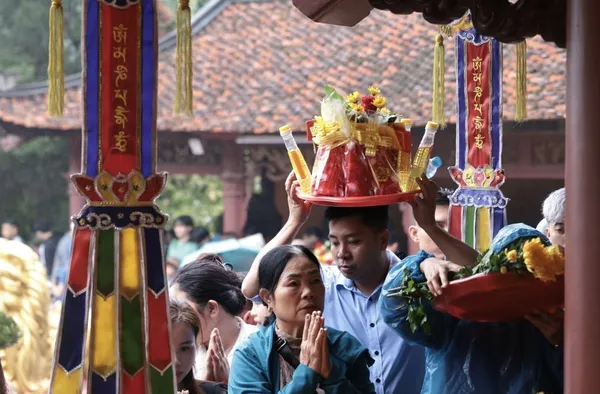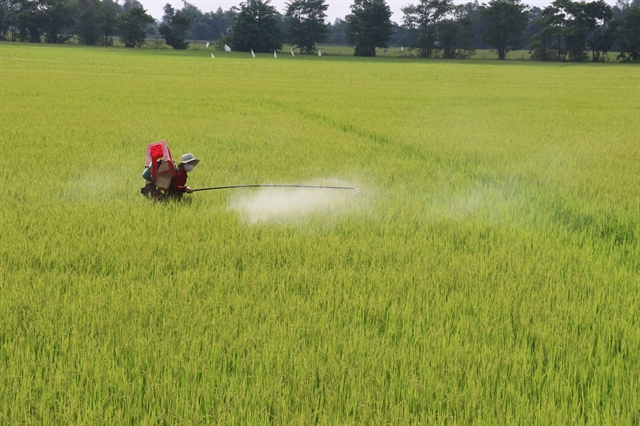 Environment
Environment

The Cửu Long (Mekong) Delta province of Đồng Tháp has expanded the collection of empty pesticide packages and bottles used in agricultural production.

|
| Spraying pesticide on a rice field in Đồng Tháp Province. The province collects and treats empty pesticide packages and bottles. — VNA/VNS Photo Nguyễn Văn Trí |
ĐỒNG THÁP — The Cửu Long (Mekong) Delta province of Đồng Tháp has expanded the collection of empty pesticide packages and bottles used in agricultural production.
Nguyễn Thanh Hùng, deputy chairman of the province’s People’s Committee, said that packages and bottles are transported to places where they are stored.
Many pesticide companies such as Lộc Trời Group and Syngenta have invested in collecting, transporting and treating empty pesticide packages and bottles in the province, he said.
The Tiến Phát Services Environmental Co., Ltd in Cao Lãnh District has registered to invest in more than 25,800 containers for empty bottles and packages and 100 places for storage. The company will also transport waste from 100 places to the waste treatment plant at Đập Đá landfill in Cao Lãnh.
The province has more than 1,350 containers that hold empty pesticide packages and bottles and nine places that store hazardous waste, according to the province’s Plant Protection and Cultivation Sub-department.
To protect the environment, the province has expanded the collection of empty pesticide packages and bottles, created so-called clean Sundays, and set up women’s self-managed groups and youth self-managed groups for environmental protection.
Tháp Mười is the province’s leading district in attracting private investment in treating empty pesticide packages and bottles.
The district has encouraged farmers to collect the bottles and packages and trade them for money. This has led to collection of 50 per cent of empty pesticide packages and bottles in the district, according to the district’s Farmer Association.
The district’s Farmer Association has also expanded the model of clean houses, clean roads and clean fields in its association chapters.
Communes and towns in the district all have containers for hazardous waste from agricultural production.
The district’s Farmer Association has raised awareness among its staff, farmers and cooperatives, about protecting the rural environment and keeping rivers free of rubbish.
The district has 400 hazadous waste containers and has collected 4,539 kilogrammes of empty pesticide packages and bottles this year, according to the district’s Farmer Association.
Under the province’s plan from 2017 to 2025, it targets having all empty pesticide packages and bottles collected and treated by 2025.
The province has about 600,000ha of farming area, growing mostly rice, fruits, vegetables and short-term industrial crops.
It uses about 11,000 tonnes of pesticides each year. — VNS